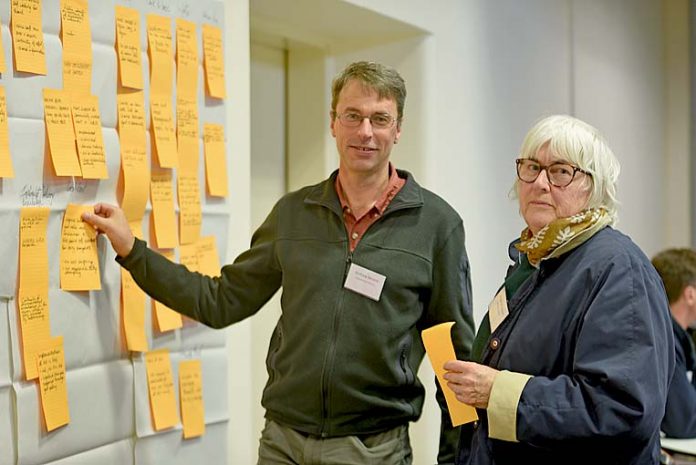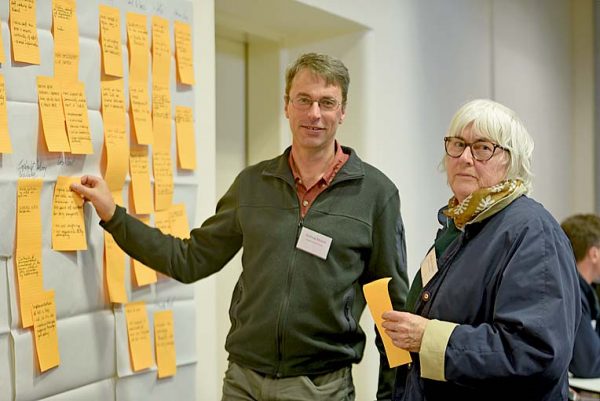

Pictures: BRETT KENNEDY
INCREASED funding and manpower, retention of levies raised in the region and greater project accountability are among the priorities highlighted by South East landowners and stakeholders for the State Government’s reform of environmental management practices.
Around 30 people attended a community forum held in Mount Gambier recently to discuss the foreshadowed Landscape South Australia Act, aimed at delivering a simpler and more effective management system which decentralises decision making and puts power back into the region.
Facilitated by independent consultancy firm Communikate, the interactive forum collected stakeholder feedback for Environment and Water Minister David Speirs around the Managing Our Landscapes Conversations for Change discussion paper released shortly after the Liberal State Government took power.
In a video address, Mr Speirs said the current natural resource management system was “not getting it right all the time”, urging stakeholders to contribute to its back-to-basics reform program.
“If you get the basics right around water catchment management, soil quality and around the removal of pests, animals and plants from the landscape, you enhance biodiversity and create a resilience in the landscape which will future-proof it against the impacts of climate change,” Mr Speirs said.
Fourth generation Millicent farmer John Mullins suggested the hot button topic of the NRM levy was a “$2.9m cost-recovery exercise” which needed to be capped or “could disappear” unless funds remained in the South East.
“Basically, the government is paying people here to do a job and getting that money back from the levy payers to pay for a job the government should be paying for anyway,” Mr Mullins said.
Mr Speirs has foreshadowed a cap on land and water levy rates set by an independent body or based on the consumer price index and greater transparency through a public budget which details levy expenditure.
The discussion paper also states levies collected in the region will be spent locally, except for a portion which will be allocated to priority landscape scale or cross-boundary projects or services to underpin regional outcomes.
Several forum participants questioned the lack of clarity over what percentage would be spent in the South East, speaking in favour of a definitive figure as opposed to an open-ended exception.
Mr Mullins said levy retention could help address a lack of money being funnelled into the current NRM board system and boost permanent staffing.
“A lot of people, particularly those coming in to do scientific work on biodiversity, are contracted,” he said.
“There was a period a couple of years ago where there was a big turnover of staff because, while people were proactive with doing their work and were good at it, if they got the opportunity for permanent employment they took it.”
But the Millicent farmer said the reform process must “be careful not to throw the baby out with the bath water”, stating he was hesitant regarding potential changes to the water allocation plan.
“We have a plan that manages underground water and we are fortunate that we have it,” Mr Mullins said.
“While it is not perfect, at least we have got it.”
Naracoorte resident Lee Castine said the relationship between Local Government and the new board structure required less bureaucracy and said the environmental body needed to play a lead role in pest, plant and animal management.
“The main issue is who is actually responsible – councils or the NRM – for weed and pest management because its seems to be hand-balled from one to the other and eventually nobody takes care of it,” Mr Castine said.
“What needs to happen is the NRM needs to take responsibility for it, but they can handball the actual physical work and pay councils to do that so its getting done.”
Several forum participants also expressed disappointment over the lack of publicity surrounding the public session, claiming it had failed to adequately engage stakeholders.







